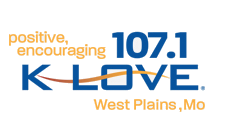
SPRINGDALE, Ark. — New efforts are underway to help small-scale farms in Arkansas expand their business.
The Food Conservancy, a northwest Arkansas nonprofit helping farmers with distribution, is supporting the first group of small farms in the state through the Good Agricultural Practices (GAP) certification, a voluntary audit of a farm’s food-safety practices by the U.S. Department of Agriculture.
After completing the audit, farms can sell their products wholesale, with The Food Conservancy, to schools, hospitals and grocery stores.
Diana Endicott, founder and director of The Food Conservancy, called the audit an “investment” in the regional food system.
“You know, I think the overall importance to the general public is, what do they want their landscape to look like?” Endicott remarked. “I think that this particular program, and having small farms and diversified farms and some orchards, along with some vegetable production and some green spaces, is very important.”
She pointed out grant funding from the Walton Family Foundation offsets the certification costs for farmers. In Benton and Washington counties, the number of farms growing fruits, nuts and vegetables has increased 45% since 2012, according to the Conservancy.
John Aselage, owns A and A Orchard in Green Forest in Carroll County, where a small team raises apples, nectarines, peaches and pears. They primarily sell their produce through local farmers markets and community-supported agriculture (CSA).
Aselage said they will be audited in November. As he gets closer to retirement and deals with a farm labor shortage, he explained moving to wholesale is a logical next step.
“It takes a lot of people, a lot of coordination and a lot of work to do these farmers’ markets,” Aselage emphasized. “Working with the Food Conservancy, they come pick up the product and distribute it; it’s just a lot less work. We’re not getting up at 2:30 in the morning on a Saturday to, you know, do farmers’ markets.”
Four farms in the region have completed GAP certification so far. The Food Conservancy said about 30 others have expressed interest.



